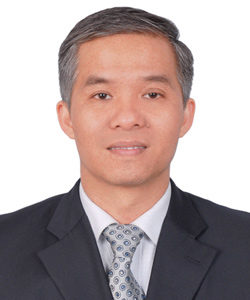Enterprises involving domestic equity often encounter problems when they go public on the Hong Kong market, one of which is non-compliance with the provisions on payment of social insurance premiums and housing provident fund (HPF).
According to the Stock Exchange of Hong Kong, 28 out of 39 enterprises (excluding those transferred from the GEM to the main board) listed on its main board from January to April 2019 involved domestic equity.

Senior Partner
ETR Law Firm
According to their prospectuses, 13 of the 28 domestic enterprises failed to comply with the provisions on full payment of social insurance premiums and HPF for all employees. These non-compliant enterprises were mainly private enterprises engaged in asset-light strategy services and processing production. Several were foreign-funded enterprises.
These enterprises were found to have violated: articles 58, 84 and 86 of the Social Insurance Law (revised in 2018); article 10 of the Provisional Regulations on Collection and Payment of Social Insurance Premiums (revised in 2019); and articles 14, 15, 16, 37 and 38 of the Regulations on Management of HPF.
Though enterprises seek different resolutions for such non-compliance, they share some common ideas:
Explanation of reasons. The main reasons for failure to pay social insurance premiums and HPF for all employees, as per their actual salaries, are disclosed in their prospectuses, and included: (1) the employees were not familiar with applicable regulatory provisions and the governments in mainland China were inconsistent in implementation or interpretation of applicable regulations; (2) some employees were migrant workers, and very mobile; (3) employees were unwilling to pay their contributions to social insurance premiums/house provident fund and voluntarily waived their payments; (4) some non-local employees were not willing to participate in the social insurance initiatives of the cities where they temporarily lived; (5) some employees had participated in the New Rural Pension Scheme and were unwilling to buy social insurances and pay the HPF; and (6) compulsory requirements for payment of social insurance premiums and HPF in full amounts may raise the risk of employee turnover.

Attorney
ETR Law Firm
Confirmation by the competent authority. An enterprise may obtain written confirmation from local social insurance authorities and administrations for HPFs that: (1) the enterprise is not subject to any administrative litigation or punishment for violation of laws and regulations on social insurances/HPF as from the date of establishment/during the reporting period; (2) the authority understands and recognizes the base pay of the enterprise and will not impose any punishment or require payment of any unpaid social insurance premiums/HPF, or the enterprise may pay its contribution to social insurance as per current rates.
Most enterprises may obtain the first above-mentioned written confirmation. The second confirmation, however, depends on the local competent authority. It is worth noting that all social insurance premiums originally collected by the social security bureau will be uniformly collected by the tax authority as from 1 January 2019, according to the Plan for Deepening the Reform of the State Tax and Local Tax Collection Administration System.
Some provinces, such as Guangdong, shifted the power of collection of social insurance premiums to the tax authority before promulgation of the plan. Among the enterprises listed on the main board of the Stock Exchange of Hong Kong from January to April 2019, some consulted their local tax authority on compliance with the provisions on payment of social insurance premiums. Most, however, applied to social security bureaus for issuance of compliance certificates/interviews.
Corrections. Some enterprises completed corrections during the reporting period and paid the social insurance premiums/social provident fund for all employees as per their actual salaries, or undertook to make corrections after listing/within a specified period of time. If the enterprise is recognized by the local competent authority to pay the social insurance premium/HPF as per the current base pay, and its Chinese legal consultant believes that the risk of being ordered to pay the unpaid amounts, overdue fines, or penalty is low, the prospectus will not necessarily contain the corrections concerning payment of social insurance premiums/HPF for all employees as per their actual salaries.
Calculation and payment of amounts in arrears. Social insurance premiums and HPF payments in arrears and overdue fines in the reporting period will be calculated and made under general conditions. The enterprise and the auditor, however, may decide whether to make such payments or not, or make such payments in full or not, based on the amounts in arrears, risk of recovery, opinion of Chinese legal counsel, confirmation by the competent authority, and opinions of directors.
Professional opinions of the lawyer. For the 13 companies that are listed on the main board of the Stock Exchange of Hong Kong and determined non-compliant with the provisions on payment of social insurance premiums and HPF from January to April 2019, Chinese legal counsel are required to express their opinions regarding the legal risks of the companies being required to pay the overdue social insurance premiums/HPF. The counsel will issue their opinions on whether the companies have low risk of punishment, or on being ordered to make payments within a specified time period, for non-compliance with the provisions on payment of social insurance premiums and HPF based on the conditions of non-compliance and confirmation by the competent authority.
Undertakings of controlling shareholders. Controlling shareholders of some domestic companies undertook to make up unpaid contributions to the social insurance premiums and HPFs, overdue fines or penalties that the competent authorities required the listed company to pay, or the contributions, overdue fines or penalties not covered after payment.
CONCLUSION
Many domestic enterprises, especially some private and foreign-funded enterprises, engaged in asset-light strategy service and processing production, and failed to comply with the provisions on payment of social insurance premiums and HPF. The Stock Exchange of Hong Kong is paying more attention to such non-compliance, and enterprises involving domestic equity should carefully consider the impact of correcting such non-compliance on their costs when they go public in Hong Kong.
Jeffrey Quan is a senior partner at ETR Law Firm. He can be contacted on +86 130 0517 0192 or by email at qzh@etrlawfirm.com. Mo Xinying is an attorney at ETR Law Firm. She can be contacted on +86 20 3718 1333 or by e-mail at xymo@etrlawfirm.com





















